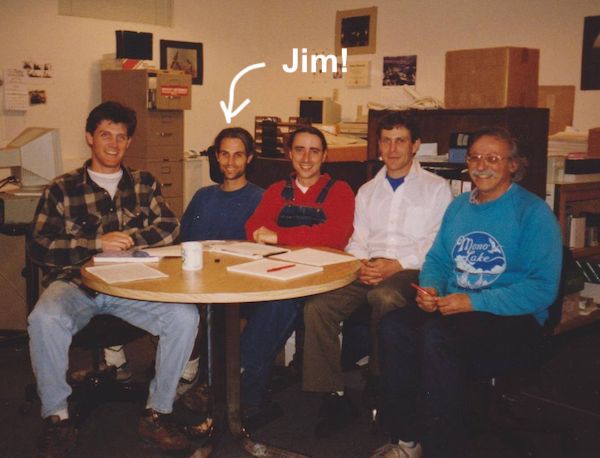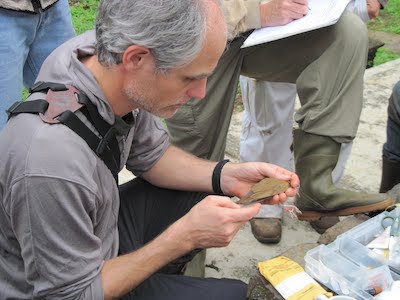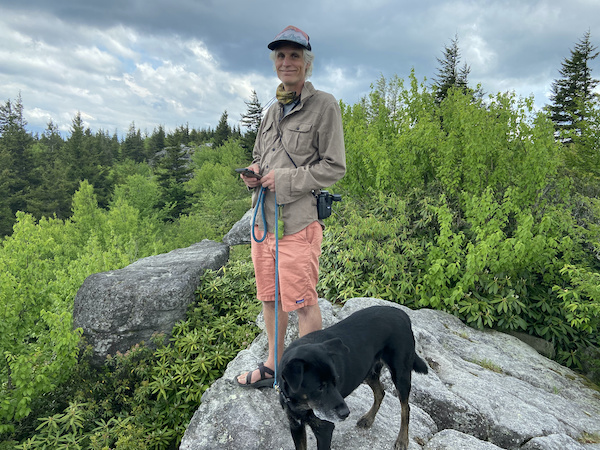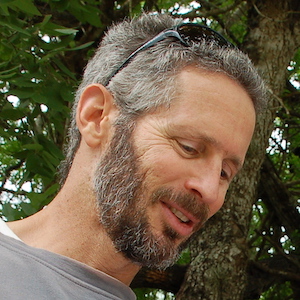Research Ecologist Jim Saracco was part of IBP's early days, then he flew off to graduate school, earned a Ph.D. and settled in Alaska. But thankfully we lured him back! Now Jim uses his formidable ecology and statistics skills to help IBP make sense of complex data. And we are proud to announce that Jim was recently made an associate editor at the journal Ornithological Applications (formerly known as The Condor.) Well done Jim!
Which came first, your interest in science or birds?
Science, I guess...I really liked biology in high school, but then really hated chemistry. I actually started college as an accounting major (seemed a practical option!), but interest in biology was rekindled with the biology course I took first semester to fulfill a science gen. ed. requirement. So I figured I'd switch my major and managed to slog through the chemistry components along the way. I still had no idea at the time though that ecology/wildlife biology was even a career option!
How did you first get interested in birds?
I didn't get into birding though until late in college when I took a field zoology course where we'd go on birding trips and mist-netted birds. I then worked on a project my last semester of undergrad trying to quantify seed preferences and interspecific interactions among some regular feeder type birds in a big aviary we built at my professor, Anthony Nastase's farm.

From L to R: Brett Walker, Jim Saracco, Zed Ruhlen, Ken Burton and Dave DeSante in the IBP office in the early 1990s.
What was your first "bird job?"
I was a MAPS intern at Yosemite in 1992. We just ran the Hodgdon Meadow station at the time. But it was a great summer mist-netting, backpacking, and birding in Yosemite.
When did you first start working for IBP?
I was a MAPS intern, then a staff biologist in the early-mid 90s before going to grad school. I oversaw MAPS stations in VA and MD and set up some stations in NC on Ft. Bragg. I also got to visit a bunch of MAPS stations in the northeastern US.
When I was finishing up grad school, I ran into Dave DeSante (founder of IBP and executive director at that time) at a meeting in Cuba where he got me into his idea of starting up the MoSI program. He and IBP Biologist Peter Pyle ran the first MoSI workshops the following year and I worked with him on a Neotropical Migratory Bird Conservation Act proposal that year which funded our first push to expand the MoSI program. I was living in Alaska and working for IBP part-time at that point. (My other part time jobs were teaching ornithology in Juneau and analyzing a bryophyte data set from Washington). I started working 'full time' for IBP again somewhere around 2003, mostly on the MoSI program and the US-based MoSI program (which we called MAWS - Monitoring Avian Winter Survival).
If you couldn't be a scientist, what career would you choose?
A farmer. I love digging in the dirt and growing stuff!
What's the best part of your job? What's the worst part?
Best parts are having the opportunity to learn new stuff everyday and getting to meet and work with so many great people (though I’ve worked remotely for a long time now- even pre-pandemic!) Worst parts are basically all aspects of sitting in front of a computer all the time and realizing that I still understand so little about pretty much everything!

Jim measuring the wing of a Wood Thrush at a workshop at Los Tuxtlas in Veracruz, Mexico.
What research projects are you working on now?
At the moment, I'm mostly working on projects that incorporate MAPS data, including integrated population models, models of productivity and survival, and looking at effects of things like migratory connectivity, human disturbance, habitat, and climate on the demography and population dynamics of birds.
What is your favorite bird?
Whatever bird I was watching today! In fact the starling in still relatively fresh basic plumage at the suet feeder right now is pretty impressive. No, really, it's so hard to choose just one. But I guess I'd say I do really like warblers as a group. Spending the past year in Pennsylvania I've really enjoyed reacquainting myself with all of the great eastern warblers that we don't get (other than as vagrants) in the west.
Do you have any hobbies?
A lot of these seem more theoretical or aspirational than actual hobbies at the moment, but some things that I like to do, or have liked to do, in recent history include:birding, gardening, cooking, running, traveling, hiking/camping, fishing/hunting/foraging, mandolin picking, building stuff/house projects.
Do you have any secret superpowers or talents?
I don't have any special superpower or talent (secret or otherwise). I mostly accomplish things by some combination of brute force and persistence.
We dispute Jim's last answer here, but however he does it- be it talent or persistence- Jim's work is a big part of what makes IBP's science top-tier. We are lucky to have him on the team!






